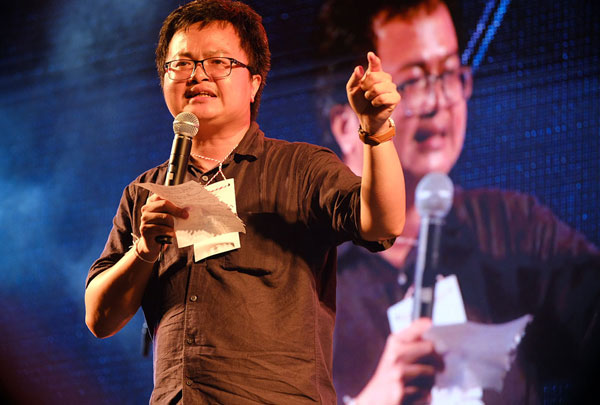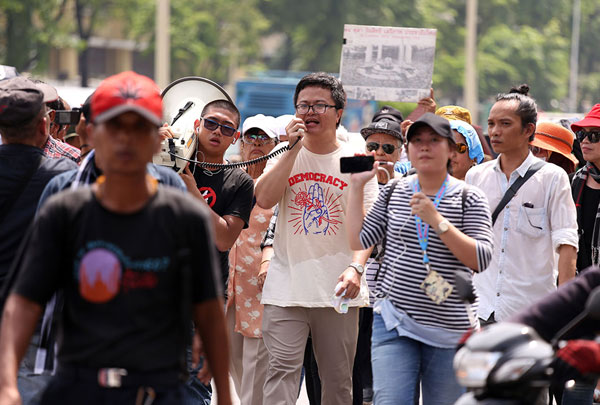[Interview] The Winner of the 2021 Gwangju Prize for Human Right
Anon Nampha

Q1. What activities have you been doing?
A1. When I was a student, I have joined people’s protests for justice and human rights and I volunteered to teach at schools during school breaks. After I graduated with a law degree, I began my human rights lawyer career until now. I took my first step as a democracy activist in 2006. I participated in the 2006 anti-coup d’etat movement. Subsequently, in 2014, I took part in another anti-coup movement. In 2018, I protested to demand an election along with other activists. In 2020, I was a protest leader calling for the reform of the monarchy, egalitarianism, equality, and freedom under the banner of the Ratsadon (the People).Q2. What is the most important thing in the human rights movement?
A2. Understand every aspect of human rights. Be open and attentive to the voices. Learn, gradually love the public debates, and be flexible. It is necessary to pay attention to voices in debates. Making a human rights related changes needs courage and persistence to break the silence on prohibited topics.Q3. What was the most difficult thing during the human rights movement?
A3. The obstacles are draconian framework and customs, namely patriarchy or submissiveness to authority. It will take time to understand and deconstruct them in the debates to enlighten the society.Q4. What was the most memorable demonstration?
A4. I would say it was August 3 protest that happened last year. It was the Harry Potter Theme Protest, a memorable and magnificently captivating one.Q5. Who was the most impressive person you met during the demonstration?
A5. They are aunties and uncles who were in those protest rallies. These elderly protesters made the rallies belong to every generation. They emanated caring protection to younger protesters. Their presence also illustrated that the majority of the society agrees with the democratic movement. I was impressed when elderly protesters prepared snacks and meals for students.Q6. There were a lot of hardship during the human rights movement. What's the driving force that keeps you going without giving up and continuing your activities?
A6. I am a romantic activist. I prefer literatures in which a protagonist or others sacrifice for the greater good in the society. Most importantly, I think individuals in the society have various talents and capacities. If individuals use their strength and talents for the greater common good, they can change the society for the better.Q7. When was the most rewarding time as a human rights lawyer?
A7. When I work as a lawyer, especially during witness examination and cross examination. It is extremely rewarding for me when I am able to prove hunan rights activists’ innocence after long and tedious process of examining and cross examining on materials.Q8. What should I keep in mind as a human rights activist?
A8. Open-minded, listening and debating. Adhere and be brave to stand for what you stand for and affirm the principles you believe.Q9. What is the most important thing to you now?
A9. The most important thing in my life is to be the part of the movement for social changes.Q10. Do you have any goals that you would ultimately like to achieve through your current activities?
A10. The ultimate goal of the movement is building an equal, fair, and free society.Q11. Is there anything you want to emphasize to Thais and Koreans for the development of democracy in Thailand?
A11. Korea and Thailand shared the similar traumatic past. The people have been wronged and crushed by state violence. The society must seek democracy through nonviolence approaches.Q12. What are your plans for the future?
A12. Balance the personal life and the public mission. Make everyday life a meaningful one.Q13. You're currently in custody. What do you want to say to your supporters?
A13. I have the faith in everyone and we continue our struggles until we bring changes to our society.


